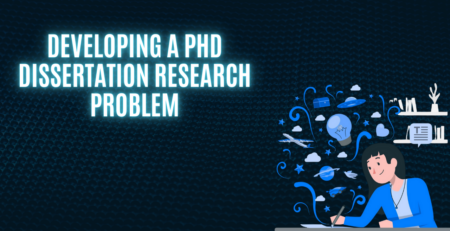29Nov

Pursuing a PhD is a rewarding but demanding journey that requires juggling multiple responsibilities, including academic research, personal life, and sometimes even professional commitments. Striking the right balance is key to maintaining productivity and overall well-being. Here are some practical strategies to help you navigate this challenging yet fulfilling phase of life, all while balancing work, life, and research during a PhD. Balancing work, life, and research during a PhD is essential for long-term success and personal fulfillment.

Understanding your goals and priorities is the first step in balancing your responsibilities. Identify the most critical tasks in your research and allocate specific time slots to focus on them. Similarly, define your non-negotiables for personal life, such as family time, exercise, or hobbies.
Tip: Use tools like to-do lists or project management apps to track progress and stay organized.
A structured daily routine can significantly reduce stress and increase efficiency. Allocate dedicated blocks of time for research, writing, and professional obligations while leaving room for relaxation and socializing.
Tip: Include buffer time to accommodate unexpected delays or additional tasks.
PhD students often face pressure to take on extra responsibilities, such as teaching, attending conferences, or contributing to side projects. While these opportunities are valuable, overcommitting can lead to burnout. Be selective and focus on activities that align with your goals.
Tip: Politely decline tasks that don’t contribute to your research or personal growth.
Utilize digital tools to streamline your research and manage your schedule effectively. Reference management software, time-tracking apps, and collaboration platforms can save time and keep you organized.
Recommended Tools: Zotero, Trello, Notion, or Google Calendar.
Keep an open line of communication with your supervisor, colleagues, and family. Share your workload and seek support when needed. Transparency can foster understanding and reduce unnecessary stress.
Tip: Regularly update your supervisor about your progress and challenges to maintain alignment.
Your mental and physical health should never take a backseat. Regular exercise, a healthy diet, and sufficient sleep are essential to staying energized and focused. Take breaks during long study sessions to recharge.
Tip: Incorporate mindfulness practices like meditation or yoga to enhance resilience.
Connect with fellow PhD students or join academic communities to share experiences and advice. Having a support system can provide motivation and reduce feelings of isolation.
Tip: Attend networking events or participate in online forums to build meaningful connections.
Life during a PhD is unpredictable. Deadlines may shift, experiments may fail, and personal challenges may arise. Embrace flexibility and adapt your plans as needed without being overly critical of yourself.
Tip: Celebrate small wins and stay focused on the bigger picture.
Balancing work, life, and research during a PhD is no easy feat, but it’s achievable with the right strategies and mindset. By setting priorities, staying organized, and taking care of yourself, you can make the most of this transformative journey. Remember, balancing work, life, and research during a PhD is key to maintaining your well-being throughout the process. The PhD journey is a marathon, not a sprint—pace yourself and enjoy the process.
Ready to simplify your PhD journey? Kenfra Research offers expert guidance to help you manage your workload effectively and achieve your academic goals. Reach out to us today!

Writing a PhD thesis is a challenging yet rewarding journey It requires careful planning, a deep understanding of your... read more

Selecting a research topics for your thesis is one of the most important decisions in your academic career. A... read more
Protests erupt as Delhi University raises PhD programme fees by 1,100%- Kenfra University of Delhi: Delhi University, officially known as the University... read more

Pursuing a PhD is a marathon, not a sprint. Between reading hundreds of papers, managing datasets, writing your thesis,... read more

If you’ve been planning to pursue a PhD, here's your chance! The Indira Gandhi National Open University (IGNOU) has... read more
IIT Delhi’s Certificate Programme in Data Science & Machine Learning will equip you with a skillset for this growing field IIT... read more
If a 48-year-old has received a gold medal from the Indian Institute of Science (IISc), it is a testament to... read more

A well-defined PhD Dissertation Research Problem is the foundation of a successful PhD dissertation. It sets the direction for... read more
Pondicherry University extends last date for PhD admission. When Pondicherry University extends the last date for Ph.D. admission, it means that... read more
WhatsApp us
Leave a Reply